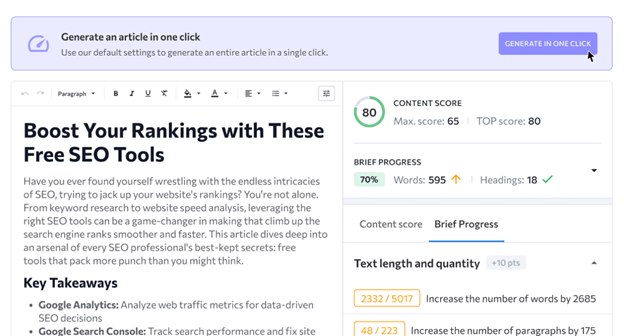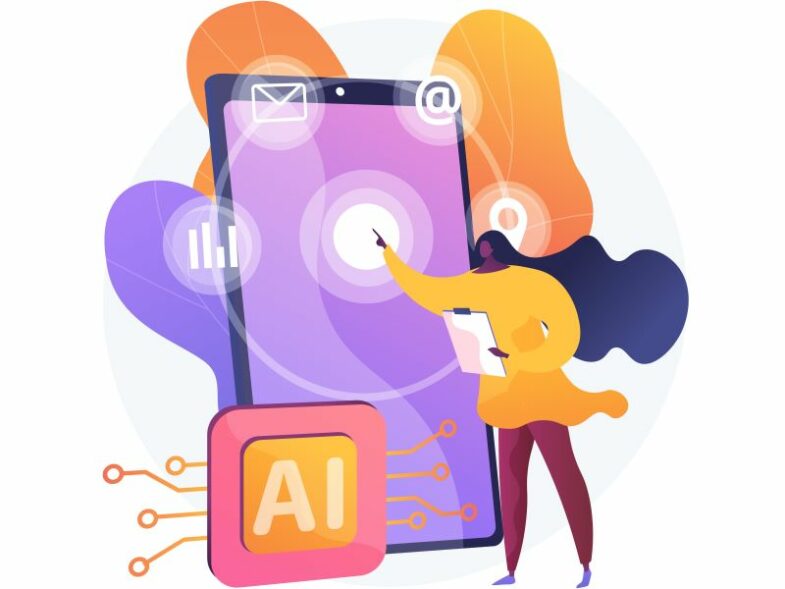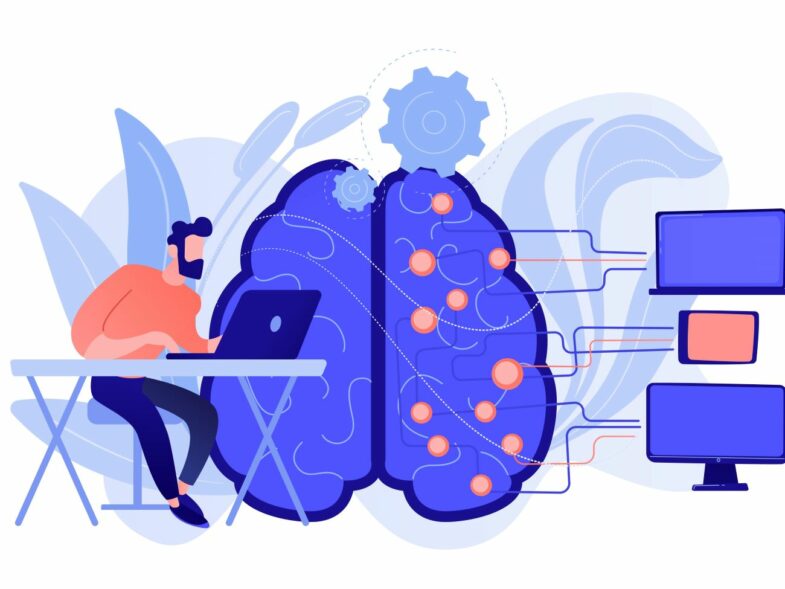Creating compelling content is rewarding. It begins with understanding your audience and brainstorming exciting ideas. Then, you craft a solid plan, let your creativity flow in the first draft, and refine your work for better visibility. Each step provides readers with enjoyable experiences, making the journey worthwhile.
What if AI could help you simplify your work? You can improve content creation, distribution, and optimization with AI tools. That can enhance your content marketing strategies in ways you haven’t seen before. As a result, you’ll have more time to focus on other important marketing tasks.
This blog post will examine six effective tactics for using AI in content marketing. These tactics will improve your content creation process and save you time.
What is AI Content Marketing?
AI content marketing uses artificial intelligence to create, share, and improve content. AI tools can help content marketers automate tasks like creating, curating, and optimizing content. That allows them to focus on making high-quality content that connects with their target audience.
Think of AI tools for content marketing as helpful team members. They can perform many tasks that a human content marketer handles, including analyzing data to understand audience behavior, writing various types of content, and creating social media calendars.
AI tools can also help plan and adapt marketing strategies based on campaign results. Their adaptability provides a complete solution for all content marketing needs, reassuring you about the future of your marketing strategies.
AI tools can complete tasks in minutes and often produce results that are as good as or better than people can do manually. Their quick and efficient work will give you confidence in your marketing strategies.
6 Smart Ways to Leverage AI in Your Content Strategy
Here are six ways that businesses use AI technology effectively in their content marketing strategies:
1. Automated Content Creation and Optimization
Creating high-quality, SEO-friendly content is crucial in establishing a robust online presence. By providing a specific topic or content brief, you enable AI tools to efficiently produce draft content that is not only well-structured but also optimized for search engines. These drafts can seamlessly integrate relevant keywords, follow SEO best practices, and maintain a consistent brand voice, significantly strengthening your overall content strategy.
Using AI tools like SE Ranking, you can create detailed, SEO-friedndly content briefs and produce more content efficiently. This tool keeps content optimized for search engines that can help rank high and converts for improving online visibility, leads, and revenue. It also allows setting parameters and focusing on adding unique topic ideas and creativity, improving the overall quality of the content and fitting your topic and custom details.

Here are some tips you should do before creating prompts for AI tools:
- Decide what you want to focus on. Is it blog posts or social media? Identify your target audience and the message you need to communicate to them.
- Once you know your goals, improve those AI-written drafts. The more precise you are from the beginning, the better the AI output will be.
- Use what AI provides and add your unique personality, creativity, and style.
- Check important information and remove any inaccuracies. A good content marketer should regularly review statements and statistics to ensure they are accurate and credible.
2. AI-Enhanced SEO Strategy
Good SEO is essential for making content visible. However, traditional keyword research takes a lot of time and can be difficult because humans cannot easily handle large amounts of data. Using only manual SEO methods also makes it hard to follow changes in search algorithms and how people search.
AI tools enable you to analyze vast amounts of search data swiftly. That allows you to identify keywords, questions, and long-tail phrases effectively. These tools assess keyword difficulty, user intent, and search volume at once. As a result, you can confidently create a good SEO strategy in just a few minutes.
This approach uses AI to help you develop better content strategies, boost your search rankings, and be ahead of your competition. It will also keep you updated as SEO guidelines and Google’s search ranking rules change.
3. Chatbots
Chatbots are a widespread use of AI in content marketing. They can help guide customers toward purchasing with minimal frustration. They are practical tools for customer service, providing quick responses and support anytime—24/7.
AI-powered chatbots allow businesses to interact with customers as if they were talking to a person. They automate customer service, answer common questions quickly, and suggest products.
In content marketing, chatbots help create interactive content like quizzes and polls. That engages your audience and gives them a more personalized experience.
4. Curated Email Campaigns
Technology is changing quickly, but email marketing remains an effective way to connect with your audience and increase brand awareness. However, crafting personalized and relevant content for each subscriber can take time.
AI can help write effective emails, predict what people will buy, and improve how we group customers. They are easy to use and help coordinate when to send emails and what to say in them.
AI-powered email newsletters can help you send personalized content to subscribers based on their interests and actions. By using AI to choose this content, you can provide relevant and valuable information to your subscribers, which increases their chances of engaging with your brand.
5. Personalized Content Recommendations
Today, consumers want personalized solutions. The challenge is to provide content that feels customized for them. AI tools can help by analyzing user behavior and preferences, creating a more tailored experience for your audience.
These tools can help you recommend content and products to individuals. They can also help you create personalized email marketing campaigns.
Leveraging AI-powered personalization enables you to analyze user behavior in real time. That allows you to develop detailed audience segments and deliver tailored content recommendations instantly. As the AI learns and adapts to user feedback and shifting behaviors, it helps ensure that your personalization strategy stays adequate and relevant over time. This approach allows for continuous improvement in user engagement and satisfaction.
6. Predictive Analytics
In content marketing, you must know how your content will perform before publishing it. This knowledge helps you use this data more effectively and boost your content strategy. Predictive analytics uses data and statistical methods to examine past information and forecast future results.
In content marketing, predictive analytics helps you understand your audience’s behavior. This information lets you see which content will likely perform well, allowing you to use your resources more effectively.
These predictions consider more than simple numbers like views or shares. They provide insights into the audience’s engagement, the likelihood of a sale, and the content’s effect on the brand’s image.
AI tools provide helpful suggestions for improving content before it is published. They recommend changes to headlines, content structure, and additional topics.
Conclusion
Whether you are new to using AI for content marketing or already know some strategies, the potential for what you can do in the future is vast.
Using artificial intelligence helps you create content faster, make your content better for search engines, and offer a personalized experience for your audience.
AI cannot replace human creativity, but it can save time and resources. That gives you and your team more chances to be creative. Adding AI to your content strategy can help you achieve your goals.









